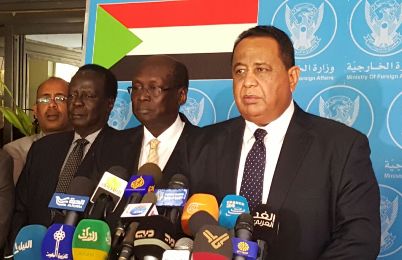S. Sudan demands “rationale decision” from Khartoum over oil charges
January 20, 2016 (JUBA) – The South Sudanese government said it has written to neighboring Sudan, requesting it to make “rationale charges” in the wake of the current rise in oil prices on the international market.

“Yes, we have written to the government of Sudan to accept our request to re-evaluate the charges and reduce them to meet the current oil prices in the international market”, Marial said Wednesday.
He added, “We are not threatening. We are asking for dialogue within which we are asking the government of Sudan to make rationale decision”.
The minister said he recently visited Khartoum to seek support from the Sudanese government over the implementation of the peace agreement, which the Juba government signed with the armed opposition last year.
“Sudanese people are passionate and I am sure they would understand. They have accepted to dialogue and our ministry of petroleum and other relevant institutions are already following these discussions,” stressed Marial.
“We are also at the level of the ministry following it with the Sudanese foreign ministry through the Sudanese ambassador here. So indeed there are discussions going on and I am sure these discussions will produce something positive and results will be in the interest of two countries”, he added.
KHARTOUM UNDERTAKES MEASURES
Meanwhile, the Sudanese government on Tuesday said it had undertaken technical measures in preparation for South Sudan’s possible shutdown of its oil production.
Speaking to Sudanese lawmakers, the country’s minister of finance, Badr al-Din Mahmoud said that Juba has failed to pay the oil transit fees, and consequently his government was forced to take its share in kind, according to Cooperation Agreement signed between the two countries.
In August 2013, South Sudan agreed to pay to Khartoum $9.10 for the oil produced in Upper Nile state and $11 for that of Unity state which produces some 20% of South Sudan’s oil. Juba also agreed to pay the Transitional Financial Assistance (TFA) to the average of the agreed oil transportation fees.
“If they are not able to implement it then we can talk about increasing the time period, but this should be done within the framework of the implementation of all other agreements,” Mahmoud said on Tuesday.
According to the Sudanese finance minister, South Sudan has only implemented the oil agreement and ignored the other protocols in the Cooperation Agreement because “they have an interest in the oil money”.
The Government of South Sudan had earlier asked Khartoum to cut the lease of Sudanese oil transportation facilities, arguing that its request was prompted by the current fall in oil prices on the international market.
Last week, South Sudan’s Petroleum and Mining ministry said it may be forced to shut down its oil fields in Upper Nile state and turn off pipeline should the Sudanese government decline a request to lower its oil transit fees.
“We are left with no option at the moment rather than to shut it down because it’s not feasible. We cannot sell the oil at loss”, the ministry said in a memo sent to Sudan’s Ministry of Petroleum and Mining.
Juba’s letter requesting the Sudanese Petroleum and Mining Ministry to reconsider its transit fees comes in the wake of changes in global oil prices, now at $29 per barrel.
Presently, South Sudan is producing oil at 160,000 barrels per day, despite a decline in its oil production due to the violent conflict that engulfed the world’s youngest nation.
South Sudan, experts say, currently receives less than $5 per barrel from its oil when transit charges paid to Sudan are deduced and oil exploration companies are paid.
(ST)
